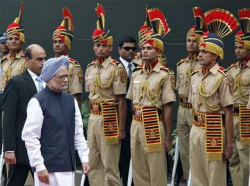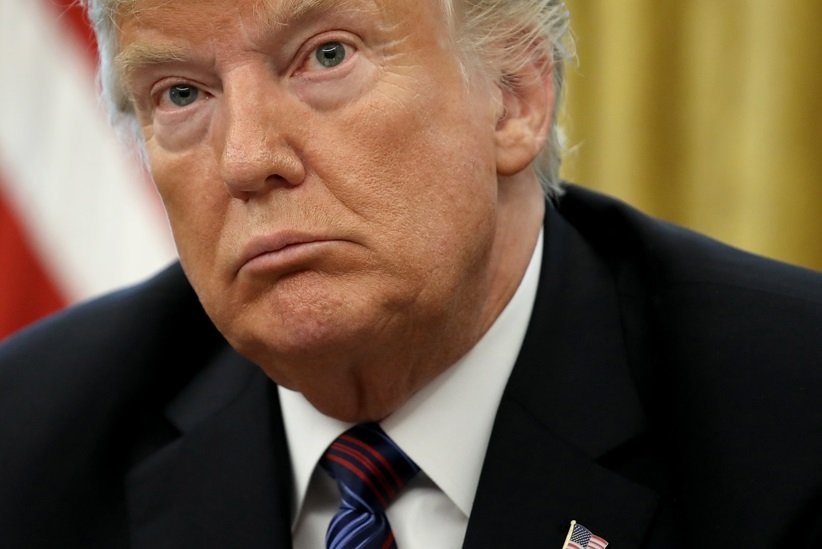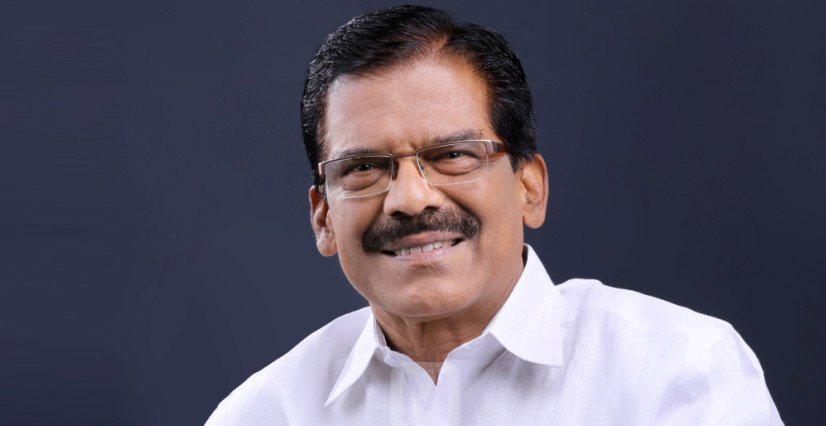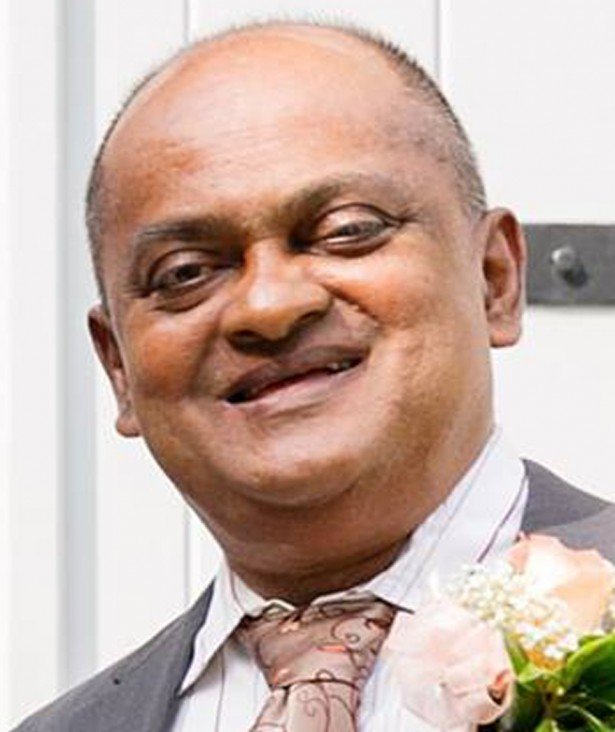In a strong message to Pakistan, Prime Minister Manmohan Singh Thursday said anti-India activities emanating from there will have to stop for relations to improve and asserted that all steps will be taken to prevent "dastardly" acts like the recent killing of jawans on the LoC.
Addressing the nation on the 67th Independence Day from the ramparts of Red Fort, the Prime Minister said terrorist and naxal violence in the country have reduced but the area of national security calls for constant vigil.
India, he said, has strived for friendship with its neighbouring countries. "However, for relations with Pakistan to improve it is essential they prevent the use of their territory and territory under their control for any anti-India activity," he said.
Referring to the August 6 killing of five Indian soldiers by Pakistan Army in a cross-LoC attack in Poonch sector of Jammu and Kashmir, he termed it as a "dastardly" act and said "we will take all possible steps to prevent such incidents in the future."
In his 30-minute speech, Singh also appeared to target the BJP and Gujarat Chief Minister Narendra Modi, saying there was no place for "narrow and sectarian ideologies" in modern, progressive and secular India.
He warned such ideologies will "divide" society and "weaken our democracy".
"We should prevent them from growing," he said.
Singh, in his 10th consecutive Independence Day address and his last before the 2014 Lok Sabha elections, stressed that there was a need to strengthen secular traditions to promote tolerance.
"I would appeal to all political parties, all sections of our society and public at large to work in this direction," he said.
The function, held at the heavily guarded 17th century fort built by Mughal emperor Shah Jahan, was attended by Congress President Sonia Gandhi, Lok Sabha Speaker Meira Kumar, Union ministers, including Defence Minister A K Antony, Leaders of Opposition in Lok Sabha and Rajya Sabha Sushma Swaraj and Arun Jaitley respectively, and foreign dignitaries.
The Prime Minister said there was a need to build an environment of political stability, social cohesion and security for an India that is prosperous and where all its citizens will be equal partners in this, irrespective of their religion, caste, region or language.
Singh expressed anguish over the loss of Navy's frontline submarine INS Sindhurakshak in an accident in Mumbai in which 18 soldiers are feared to have lost their lives.
"We are deeply pained that we lost the submarine, INS Sindurakshak in an accident Wednesday. Eighteen brave sailors are feared to have lost their lives," he said.
On the issue of internal security, the Prime Minister said despite some worrisome communal incidents in 2012 and this year, the last nine years have been good for communal harmony. Although he did not elaborate, his mention about this year's communal violence seemed to be reference to last week's riots in Kishtwar in J-K.
"There has been a reduction in terrorist and Naxal violence also. However, the area of national security calls for constant vigil. We have not been successful in preventing Naxal attacks that happen from time to time," he said.
He said the Naxal violence in Chhattisgarh on 25 May was a "frontal attack on our democracy."
In an apparent reference to the controversy over poverty figures, the Prime Minister said measuring poverty is a "difficult task".
"There are diverse views about what constitutes poverty. But whatever definition we may adopt, it cannot be denied that the pace of reduction in poverty has increased after 2004," he said.
On the issue of development, Singh said many states which had been considered backward for a long time are now progressing rapidly.
As the Lok Sabha this week failed to discuss the National Food Security Bill for two consecutive days due to disruptions over Telangana issue, Singh hoped that the legislation will be passed shortly.
"The Food Security Bill is now before Parliament and we hope it will be passed shortly," he said pointing that the proposed law will benefit 75 per cent of rural population and half of urban population.
Under the law, about 81 crore Indians would be entitled to receive rice at Rs 3 per kg, wheat at Rs 2 per kg and coarse grains at Re 1 per kg.
On the issue of education for all, the Prime Minister said almost all children in the country are being imparted education in primary schools after the Right to Education Act came into being.
He said while the number of youth going to colleges has more than doubled in the last 9 years and new schemes have been implemented to provide scholarship for the needy, "much still remains to be done for reforming our education system.
"Many of our schools still lack drinking water facilities, toilets and other necessary infrastructure. There is a need to improve the quality of education. To achieve this, it is necessary to lay more emphasis on training of teachers," he said.
"A special cell has been set up to help big projects with clearances. The Cabinet Committee on investment is working to remove hindrances in the way of stalled projects," he said.
Singh said there had been good progress in the last 9 years in the infrastructure sector in areas such as roads, railways, power, civil aviation, ports and telecommunications.
He mentioned that telephone connections in the country has now reached 73 per cent from only 7 per cent in 2004.
"In rural area, this figure has gone up from 2 to 40," he said.
"There has been a record addition to our capacity for electricity generation," he said.
In an apparent reference to the controversy over poverty figures, the Prime Minister said measuring poverty is a "difficult task".
"There are diverse views about what constitutes poverty. But whatever definition we may adopt, it cannot be denied that the pace of reduction in poverty has increased after 2004," he said.
On the issue of development, Singh said many states which had been considered backward for a long time are now progressing rapidly.
As the Lok Sabha this week failed to discuss the National Food Security Bill for two consecutive days due to disruptions over Telangana issue, Singh hoped that the legislation will be passed shortly.
"The Food Security Bill is now before Parliament and we hope it will be passed shortly," he said pointing that the proposed law will benefit 75 per cent of rural population and half of urban population.
Under the law, about 81 crore Indians would be entitled to receive rice at Rs 3 per kg, wheat at Rs 2 per kg and coarse grains at Re 1 per kg.
On the issue of education for all, the Prime Minister said almost all children in the country are being imparted education in primary schools after the Right to Education Act came into being.
He said while the number of youth going to colleges has more than doubled in the last 9 years and new schemes have been implemented to provide scholarship for the needy, "much still remains to be done for reforming our education system.
"Many of our schools still lack drinking water facilities, toilets and other necessary infrastructure. There is a need to improve the quality of education. To achieve this, it is necessary to lay more emphasis on training of teachers," he said.
In an apparent reference to the death of 23 children in Bihar's Chhapra district after eating contaminated mid-day meal prepared in the school, the Prime Minister said the scheme will be "reformed".
"The meals being provided to our children should not only be nutritious but also be cooked hygienically. We will take concrete steps to ensure this," Singh said.
Amid allegations of corruption, Singh said the RTI Act and the proposed institution of Lokpal will help bring transparency and cleanliness in administration.
He said the transparency law frequently brings to light irregularities and corruption and opens the door for improvement.
He said the National Rural Health Mission launched by the UPA 1 in 2005 has started showing good results with maternal maternity and infant mortality rates coming down sharply.
The Prime Minister said now a much larger proportion of children is born in hospitals and there has also been a large increase in the proportion of children being inoculated.
"No case of polio has been detected in the country in the last two years. We have been able to eradicate a disease which used to cause disability to lakhs of people," Singh said pointing at the achievement.
Amid a debate on inclusive growth, Singh said government has taken steps to ensure that everyone benefits from fruits of development.
A high level committee has been set up to collect accurate information about the socio-economic, educational and health status of tribal population. He said the report of the panel will help government design better schemes for their benefit.







Comments